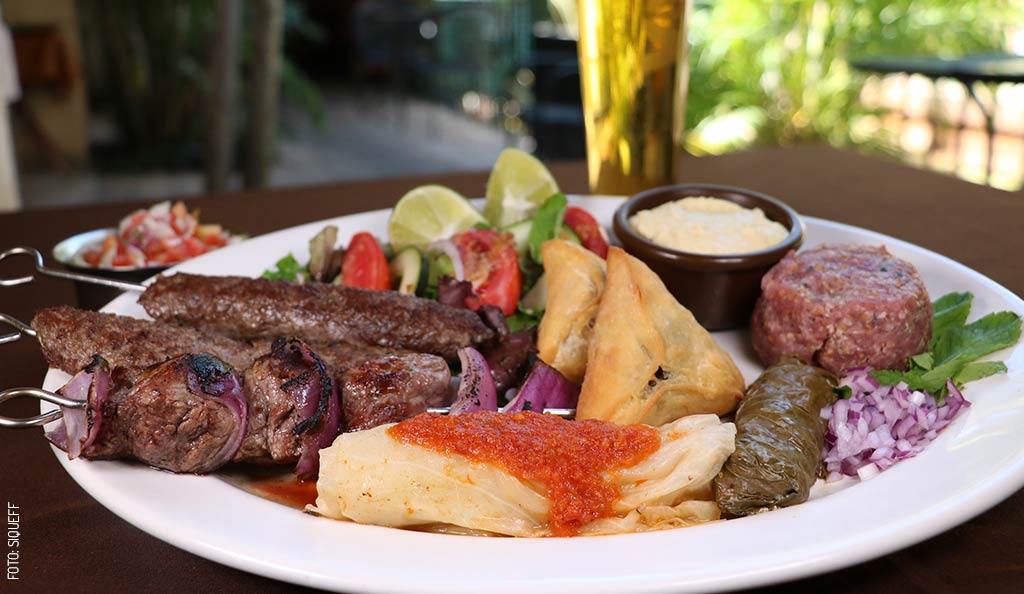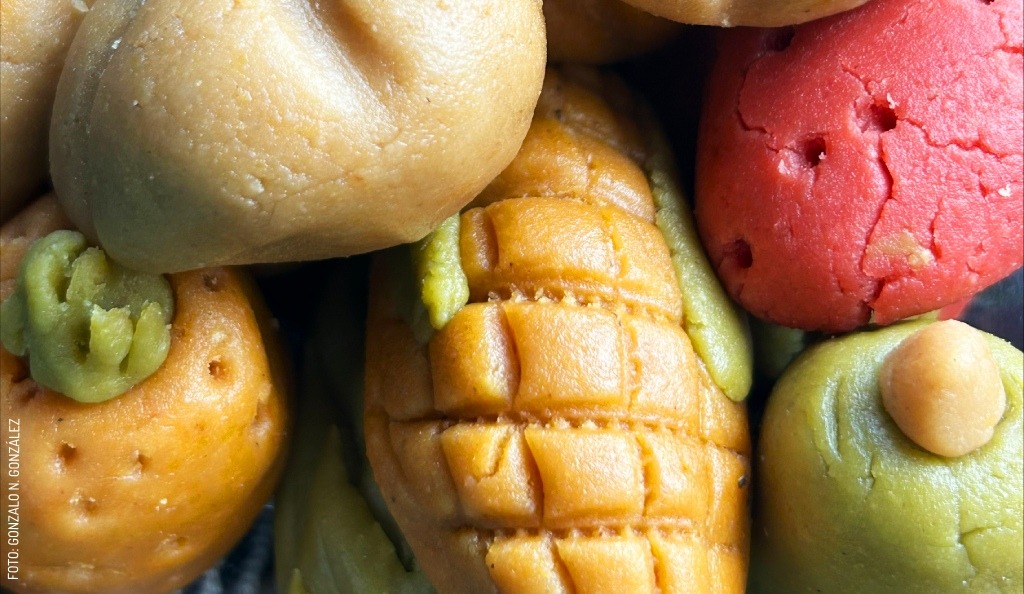
Miniature fruit: Yucatecan pumpkin seed marzipan
Miniature Fruits: Yucatecan Pepita Marzipan, Miniature fruit: Yucatecan pumpkin seed marzipan.
Pumpkin seeds are an essential ingredient in Yucatecan cuisine. Locally known as pepita, these seeds have been a staple in preparing the region’s traditional dishes and were once a crucial part of the Maya diet. Today, pepita has become a delicious symbol of Yucatecan culinary heritage.
You’ll find pepita in beloved Yucatecan dishes like papadzules, sikil p’aak, brazo de reina, and its variations like dzotobichay. But it’s not just savory dishes where pepita shines—their unique flavor also adds a special touch to desserts, like the “zapotitos” or pepita marzipans.
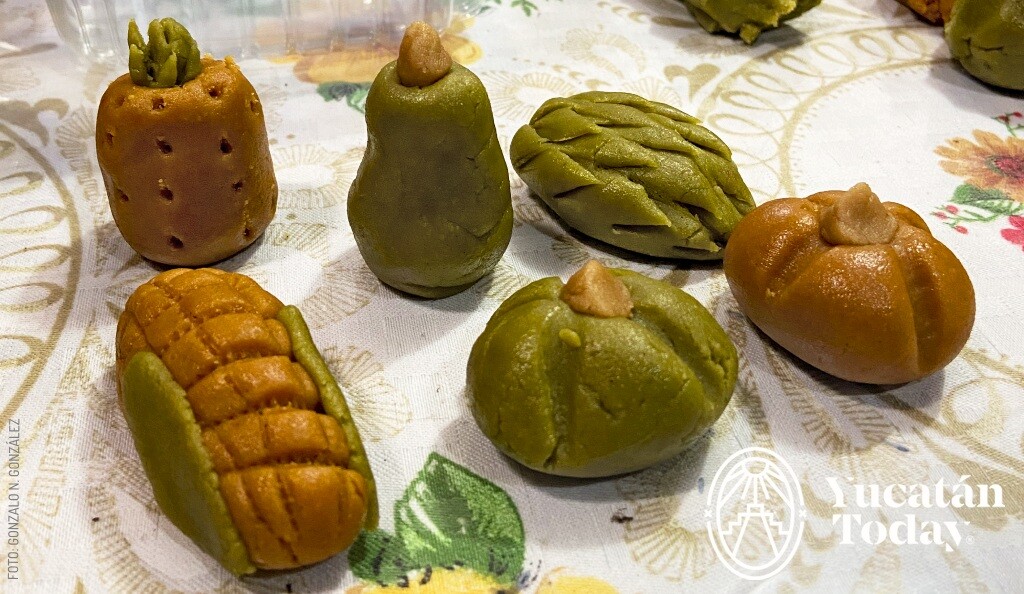
Zapotitos or pepita marzipans
The sweet tradition of pepita marzipans (or mazapanes, as they’re called in Spanish) can be found all across the state. These delightful treats are usually available at local markets or traditional candy shops. For instance, at the Motul market, I had the pleasure of meeting Doña Lina, who has been running her stall for over a decade. She offers these delicious marzipans for the modest price of just $4 pesos each.
“These are pepita marzipans. [...] They are made here in Motul, using pepita and cinnamon, though I don’t know the exact recipe.” The zapotitos or marzipans that Doña Lina sells are small and round, very light brown in color, and covered in cinnamon. When I tried them, I could confirm their delicious taste: smooth, sweet, with a very slight spicy hint of cinnamon, and a somewhat crumbly yet moldable texture.
Mazapanes or zapotitos shaped like fruit
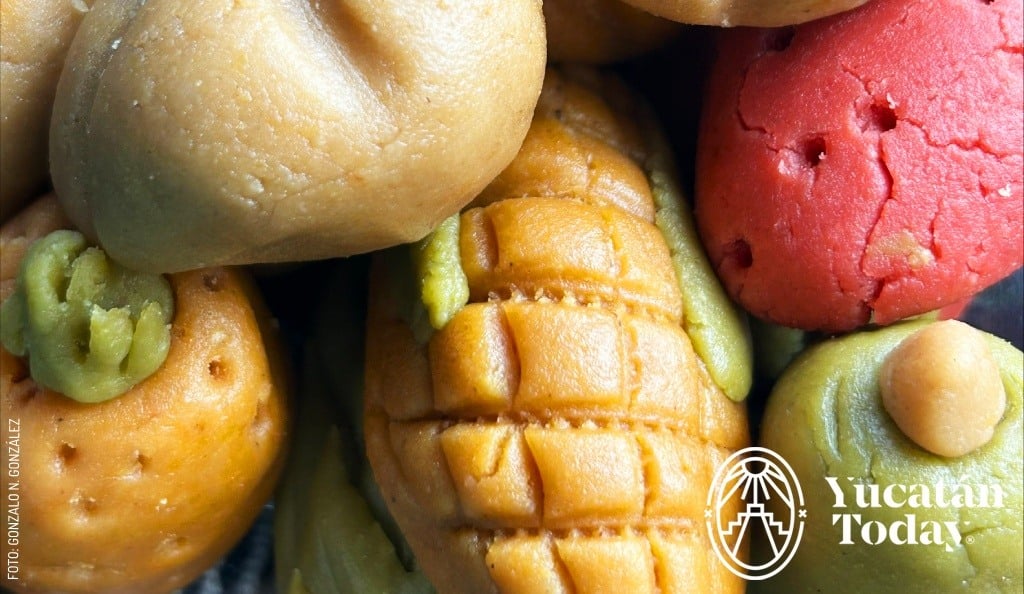
While Doña Lina in Motul offers a simple and delicious version of this treat, down south in Tekax, doña Martha Martín Castillo has turned the tradition into a meticulous art, crafting pepita marzipans for decades.
It all began over fifty years ago when Doña Martha’s mother learned to make these treats to earn a little extra income. Thanks to the incredible taste of her marzipans, she eventually left her job as a domestic worker to focus entirely on making them, passing down the original recipe and knowledge to her daughter, who continues the tradition to this day.
We had the pleasure of being invited to Doña Martha's home, where she showed us and explained in detail the labor-intensive process involved in making the zapotitos. This process includes peeling the pumpkin seeds one by one, shaping the marzipan into fruit figures, and painting them to create small, edible works of art.
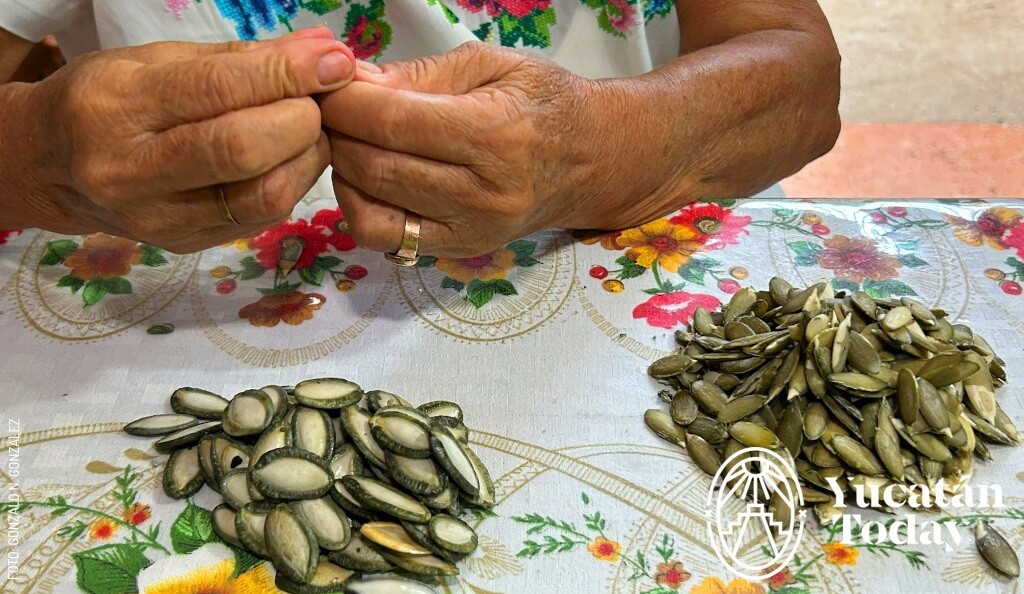
It’s worth mentioning that nearly all the steps involved in making the zapotitos are done by hand, making the process truly artisanal: time-consuming and, yes, exhausting.
'If someone asks me for the sweets today, I wouldn’t be able to have them ready by the afternoon, but rather by the next day. It is a lot of work,' she explains.
This is why the price is higher compared to other traditional sweets or even the plain zapotitos. Doña Martha offers a 500-gram tray (15 pieces) for $170 pesos. She also shares that in recent years, her mazapanes have become a traditional gift for people in the area, who take the opportunity to give them to family and friends from other states and countries, as you can't find this exact treat anywhere else.
Zapotitos: An essential part of Janal Pixan altars
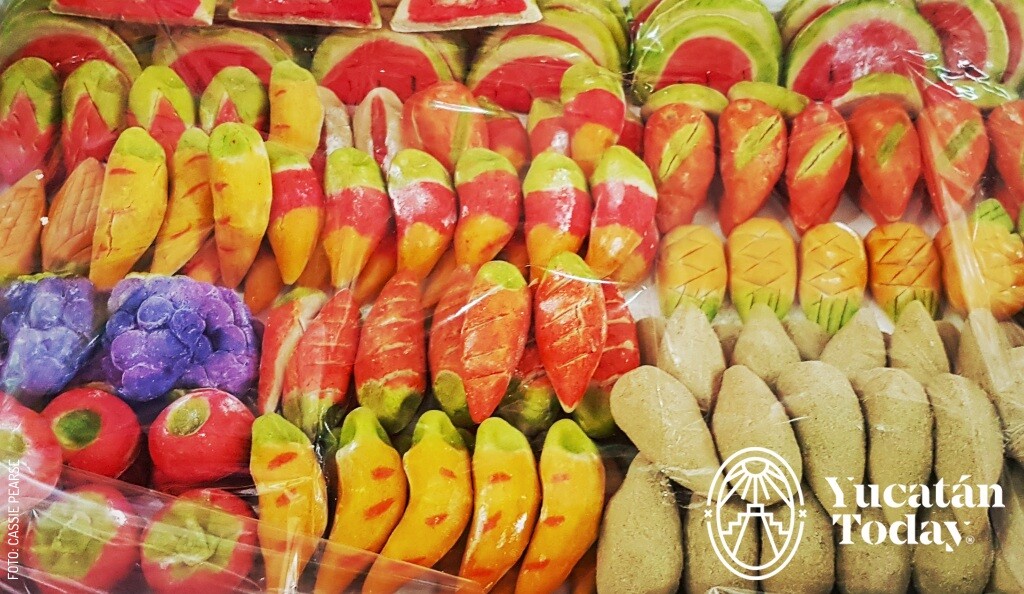
The workload increases especially during the time of Finados or Janal Pixan (known as the Day of the Dead in other parts of México). During these dates, between October and November, there is a surge in the consumption of these mazapanes, as they are commonly used as offerings on traditional altars.
“We start preparing them fifteen days in advance, and there are six of us working. We sell up to 600 kilos of marzipan, mainly for Mérida”.
Doña Martha’s mazapanes in Tekax
We asked Doña Martha if anyone in her family would continue the tradition, just as she did with her mother many years ago.
“I have a son, but he’s a teacher. When he’s on holiday, he comes to help us. I’ve also taught two of my nieces, but they’re not really interested.”
If you’d like to try the marzipans Doña Martha makes, you can reach her at 997 101 3176 via WhatsApp or call. She often travels to Mérida to make deliveries and pick up supplies.
Next time you’re at a local market, don’t forget to try these mazapanes—a sweet bite of history and peninsular tradition that is also a form of art and a labor of love.
Photography by Gonzalo N. González and Cassie Pearse for its use in Yucatán Today.
First published in Yucatán Today print and digital magazine no. 442, in October 2024.

Author: Gonzalo N. González
Yucatecan accountant. Lover of nature, video games, plants, new places, and silence.
In love with Yucatán? Get the best of Yucatán Today delivered to your inbox.
Related articles

Natural Superheroes: Mangroves
Yucatan Mangrove Guide: Learn about mangrove types (red, black, white), ecological benefits, and the best coastal spots to visit in Mexico. Explore...
Señora Homa, Hotel Casa San Ángel
I've always loved Casa San Angel and its adjoining restaurant, Tala. It's just one of those places that envelops you in a gentle welcome...and now I...